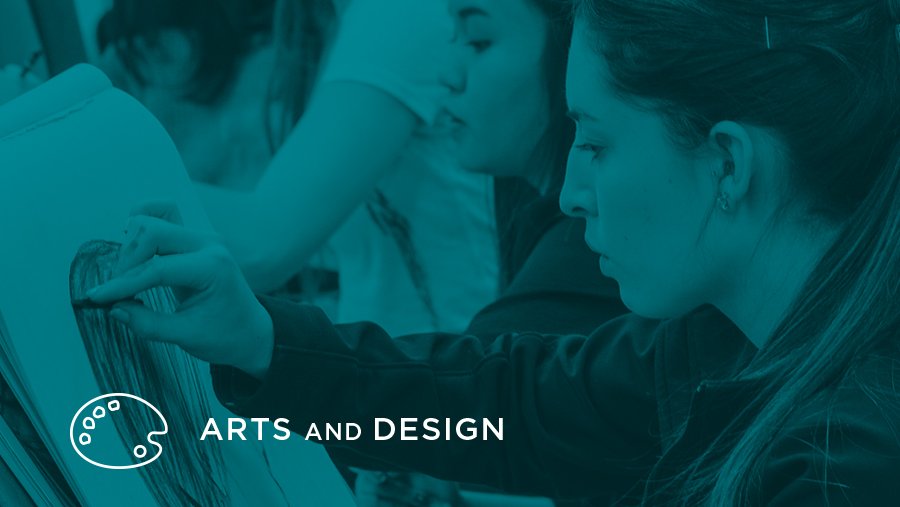Arts and Design

Essential Skills:
- Communication
- Personal & Social Responsibility
- Critical Thinking
3 credit hours
One course from the list below.
a piano is trying to break a molecule
is trying to lift the stage into orbit
around the red spotlights
- Explore how diverse human values and experiences contribute to the making and uses of art.
- Explain the cultural sources and outcomes of creativity in the arts and design
- Design a performance, a work of art, a landscape or building
- Identify how arts and design are produced and how they affect different people and communities.
For qualified students who meet the necessary pre-requisites and placement, upper-division courses at the appropriate level may be taken in fulfillment of general education in this area. Students with advanced skills in an area can work with their advisor and departmental faculty to identify the appropriate level and course.
Courses
| Course Number | Name | Description |
|---|---|---|
| ARCH 1120 | Introduction to Architecture | |
| ARCH 2151 | Design Thinking | |
| ARTH 1120 | Introduction to Art | |
| ARTH 2110 | History of Art I | |
| ARTH 2120 | History of Art II | |
| ARTS 1143 | Introduction to Art and Ecology | |
| ARTS 1220 | Art Practices I | |
| ARTS 1410 | Introduction to Photography | |
| ARTS 1510 | Introduction to Electronic Arts | |
| ARTS 1610 | Drawing I | |
| ARTS 1810 | Jewelry and Small Metal Construction I | |
| ARTS 1840 | Sculpture I | |
| CCST 1125 | Chicana/o Latina/o Musical Cultures and Expressions | |
| DANC 1110 | Dance Appreciation | |
| DANC 1140 | Flamenco I | |
| DANC 1170 | Hip Hop I | |
| FDMA 2110 | Introduction to Film Studies | |
| HNRS 2113 | Fine Arts as Global Perspective | |
| MUSC 1120 | Music Appreciation: Rock and Roll | |
| MUSC 1130 | Music Appreciation: Western Music | |
| MUSC 2790 | Digital Music Production and Design I | |
| THEA 1110 | Introduction to Theatre | |
| THEA 1220 | Beginning Acting |
*These courses are only offered through the UNM Branch Campuses.
